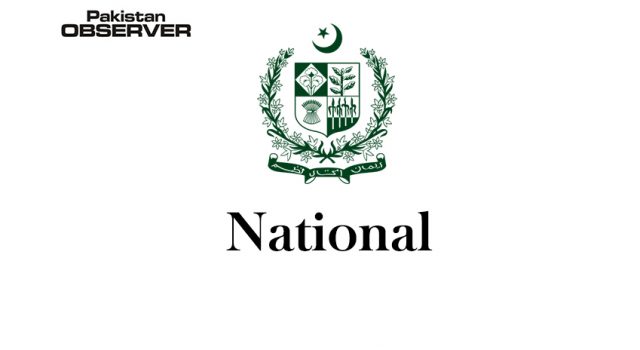Islamabad
Implementation of the health guideline protocols under the Standard Operating Procedures (SOPs) is significant measure to help protect the masses from the‘re-emergence spike’ or what may be called as ‘the second wave’ of coronavirus, particularly in wake of the changing weather conditions of Pakistan.
The famous old proverb of ‘prevention is better than cure’ perfectly fits the current pandemic situation. Only the precautionary measures can prevent the virus from spreading to other people. Therefore, once again, the masses are sensitized and organizations urged to strictly adhere to the health protocols in terms of proper physical distance, avoidance of handshake and hugging and wearing of masks to reduce the risk of coronavirus spread for their as well as the safety of others.
Since the first case of coronavirus was reported in the country on Feb 26, 2020, the government wanted to adopt a holistic approach to curb the spread of the virus. The first wave of the deadly virus was largely overcome due to the unprecedented measures of the government, coordinated efforts of the concerned authorities and collective response of the public at large against the pandemic.
For this purpose, the government has come up with well formulated balancing strategies to launch the approach of ‘smart lockdowns’: the targeted tracking, testing and quarantine mechanism in coordination with national security apparatus to curb the growing number of Covid-19 cases in the country by sealing the areas of infected cluster population (hotspots). Therefore, the government efforts against the virus were lauded both locally and globally.
However, the looming fear and hanging sword of the virus is still affecting the lives of people across the globe including Pakistan. The virus is transmitted either through direct contact with the infected person or with the droplets of the infected person’s cough or sneeze, or touching the surface that has cough or sneeze droplets. And later on touching the mouth or face with the infected hands as the COVID-19 virus can survive on surfaces for several hours.
Prime Minister Imran Khan in his tweet last Sunday advised the nation to strictly observe the precautionary measures to avert the ‘second wave’ of the virus in the upcoming winter season. He said, ‘Compared to some other states, Allah has been kind to us in Pakistan and spared us from the worst effects of COVID-19. There is a fear that the onset of winter could result in a second wave. I urge everyone to wear face masks in public to avoid a spike. All offices and educational institutions must ensure masks are worn.’
However, according to the cross-sectional study (the sample comprised of nearly 1,700 people from healthcare, community and industrial workers) at National Institute of Blood Diseases (NIBD), Karachi, conducted by a team of microbiologists, hematologists and pathologists led by Dr. Samreen Zaidi, between May and July, published by Oxford University Press Journal of Public Health, titled ‘Challenges in acquiring herd immunity for COVID-19’ said that Pakistan has “almost” achieved herd immunity, indicating that there are low or slim chances of the ‘second wave’ of the pandemic.
According to the statistics of Pakistan’s real-time updates data portal for COVID-19 till filing of the feature, the country has so far 8015 active cases with 583 reported active and recovery of 1,087 during the last 24 hours. The area-wise detail of the active corona cases is given: Sindh 4,477, Punjab 1,519, KP 499, Islamabad 616, GB 265, Balochistan 232 and AJK 407.
The portal has also reported 316, 934 confirmed cases, 6,544 deaths, 302, 375 recoveries of coronavirus patients in the country. Talking to APP, Pakistan Tehreek-e-Insaf Senator Prof. Dr. Mehr Taj Roghani while expressing her concerns over the non-compliance of SOPs in educational institutions, hospitals and markets said ‘Neither anyone was following SOPs nor anyone was paying any attention to it as if people have taken the pandemic so light.’
Cardiologist, Dr. Noor ul Karim, Lady Reading Hospital, Peshawar while talking to the agency said that the government should implement its SOPs as it was the only way to contain the spread of virus. He said that wearing masks should be made mandatory for everyone during the outdoor activities. Dr. Mehr Taj said, ‘It was high time for the government to take concrete steps to impose safety measures to avert the surge in cases of coronavirus.’ She said if timely steps were not taken to control the situation, there were greater chances of spike in coronavirus cases in the country.—APP









